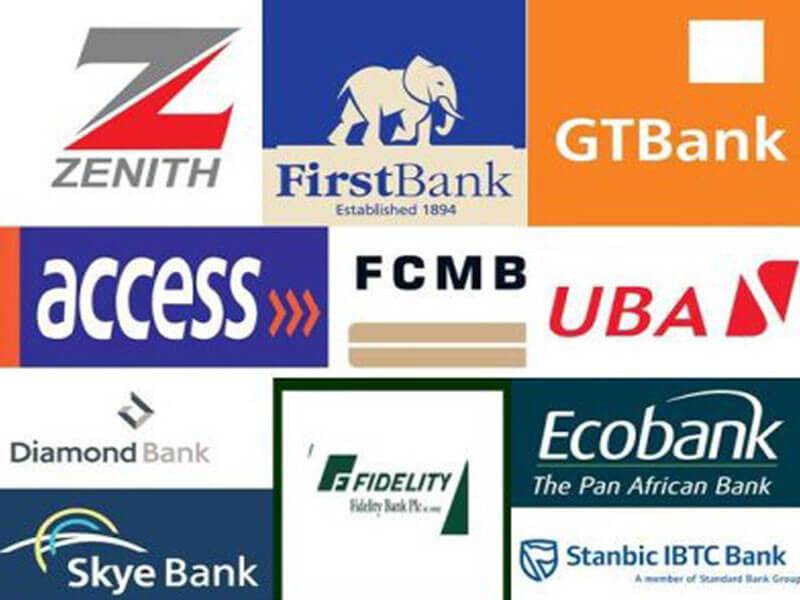As Nigerian banks brace for the potential implementation of a 50 per cent tax on foreign exchange (forex) revaluation gains for 2023, the sector’s profitability and growth outlook face considerable uncertainty.
The proposed tax is expected to significantly impact the profitability of major Nigerian banks, which have reported substantial forex gains amid fluctuating currency values.
Over the past year, banks have seen a dramatic rise in pre-tax profits, driven largely by gains from forex revaluation. The volatility of the Naira has enabled these banks to leverage the revaluation of foreign currency-denominated assets and liabilities, leading to record profit levels.
In 2023, twelve leading banks—UBA, Zenith Bank, GTCO, Access Holdings, FBNH, FCMB, Fidelity Bank, Jaiz Bank, Stanbic IBTC, Sterling Bank, Wema Bank, and Zenith Bank—collectively recorded N3.722 trillion in pre-tax profits.
A significant portion of these profits came from forex revaluation gains, resulting in a combined post-tax profit of N3.156 trillion, marking a 201 per cent increase from the previous year.
READ ALSO: CBN to sanction banks, BDCs rejecting old dollar notes
UBA, which reported the highest income tax expense among its peers, saw its tax bill rise to N149.984 billion in 2023, due to a pre-tax profit of N757.680 billion bolstered by substantial forex gains. If the proposed 50 per cent tax is enacted, UBA’s profitability will be directly affected, diminishing its notable bottom line.
Zenith Bank, the most profitable bank of 2023, recorded a pre-tax profit of N795.962 billion and incurred a tax expense of N119.053 billion. With forex revaluation gains totaling N228.982 billion, the proposed tax could significantly reduce its profit after tax, which is the highest among the banks.
Access Holdings reported N628 billion in forex-related gains, which greatly contributed to its N729.001 billion pre-tax profit. The proposed tax could substantially increase its tax liabilities, impacting its profit after tax, which stood at N619.324 billion in 2023.
GTCO’s substantial forex gains of N442 billion, although unrealized, suggest a potential increase in tax burden. The bank’s pre-tax profit of N609.308 billion and tax expense of N69.654 billion would be significantly affected, potentially curbing its profitability.
FBNH, with relatively lower forex gains and a pre-tax profit of N351 billion, faced a tax expense of N48.393 billion. The proposed tax on realized forex gains could still add pressure, particularly given the bank’s unrealized revaluation loss on foreign currency balances.
READ ALSO: Fidelity Bank to raise N127.1bn to meet CBN’s new capital base requirement
The proposed tax poses a challenge not only for the largest banks but also for smaller institutions. Banks such as Stanbic IBTC, Fidelity Bank, FCMB, Wema Bank, Sterling Bank, and Jaiz Bank will also face increased tax liabilities, potentially straining their profit margins and affecting their financial health and investor confidence.
Investor sentiment is already wavering, evidenced by a 0.77 per cent drop in the banking sector index last week.
Analysts at FBNQuest caution that the introduction of the tax could further dampen sentiment, leading to decreased investment and lower stock prices.
They also warn that banks might face liquidity challenges as they adjust to higher tax burdens, potentially impacting their ability to lend and support economic growth.
“The increased tax burden could force banks to reevaluate their strategies, possibly reducing their exposure to foreign currencies or finding ways to mitigate the financial impact,” analysts said.
In a related development, KPMG Nigeria, a global tax and advisory service firm, criticized the retroactive application of the tax.
KPMG noted that Nigeria’s tax policy generally opposes retroactive tax measures. “It is surprising that the government is opting for these windfall taxes retroactively. Many banks have already submitted their tax returns for the 2023 financial year and settled their liabilities,” the firm stated. “The retroactive application could raise constitutional concerns and might lead to legal disputes and challenges.”
KPMG also described the windfall tax as a form of double taxation, given that banks have already paid 30 percent of their overall profit, including forex gains, as Company Income Tax (CIT).
As the sector awaits the government’s final decision, stakeholders remain apprehensive, aware that the proposed tax could reshape the financial landscape, challenging banks to navigate a new era of fiscal policy and economic volatility.

 Entertainment1 week ago
Entertainment1 week ago
 Business1 week ago
Business1 week ago
 Health1 week ago
Health1 week ago
 Business1 week ago
Business1 week ago
 Latest1 week ago
Latest1 week ago
 Football1 week ago
Football1 week ago
 Entertainment1 week ago
Entertainment1 week ago
 Entertainment6 days ago
Entertainment6 days ago

